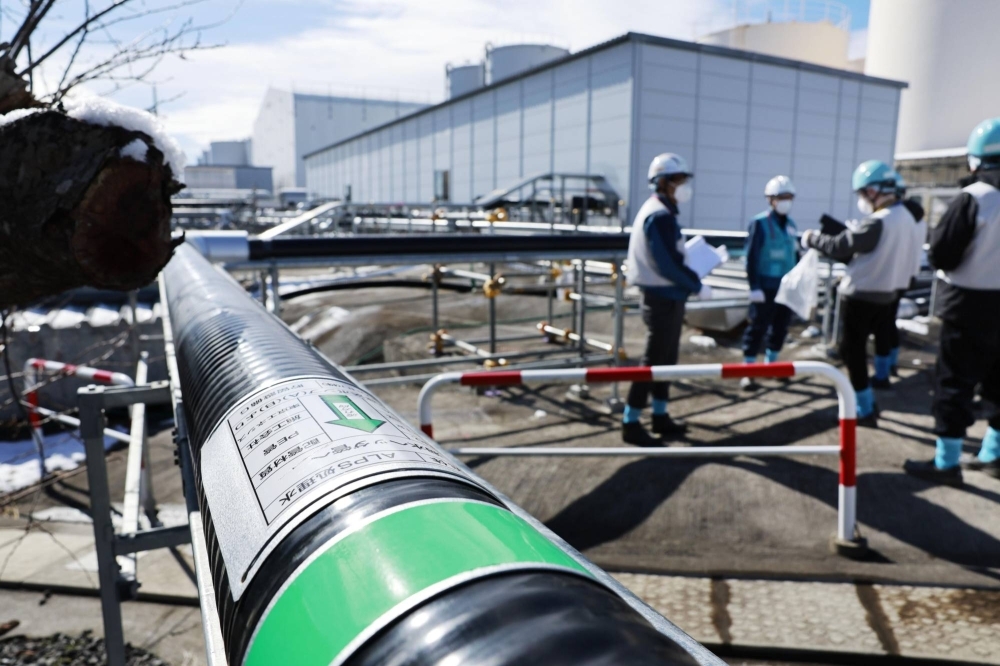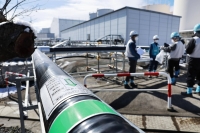A group of Indonesian environmental and human rights activists on Thursday filed a lawsuit against Japan to demand it stop releasing treated water from the crippled Fukushima nuclear power plant into the Pacific Ocean, which started last summer.
Marthin Hadiwinata, a member of environmental organization Ekomarin and one of the plaintiffs, said the release of the treated wastewater "will directly impact Indonesia's ecosystem," asserting that seafood products contaminated by the water posed a hazard to humans who consume them.
After the lawsuit was filed at the Central Jakarta District Court, Marthin said at a news conference that they suspected seafood caught in Indonesia's waters and those imported from Japan had been contaminated with radioactive substances, citing some studies but without elaborating.
The activists said in a statement that they decided to take the case to court after the Japanese government did not respond to the complaints they had submitted through the Japanese embassy in Jakarta.
At the news conference, Gina Sabrina of the Association of Legal Aid and Human Rights Organizations said the activists demanded Japan to stop releasing the wastewater, adding that they also want Tokyo to pay damages totaling 1 trillion rupiah ($64 million) to the plaintiffs over the pollution.
The court said it would decide on a date for the first hearing later.
Last month, the International Atomic Energy Agency said in its first full report since the water release began in August last year that Japan's discharge of treated water into the sea was consistent with international safety standards.
The Japanese government and the plant operator, Tokyo Electric Power Company Holdings, maintain that the disposal of the wastewater is a crucial step toward decommissioning the Fukushima No. 1 power plant that suffered nuclear meltdowns triggered by the massive 2011 earthquake and tsunami.




